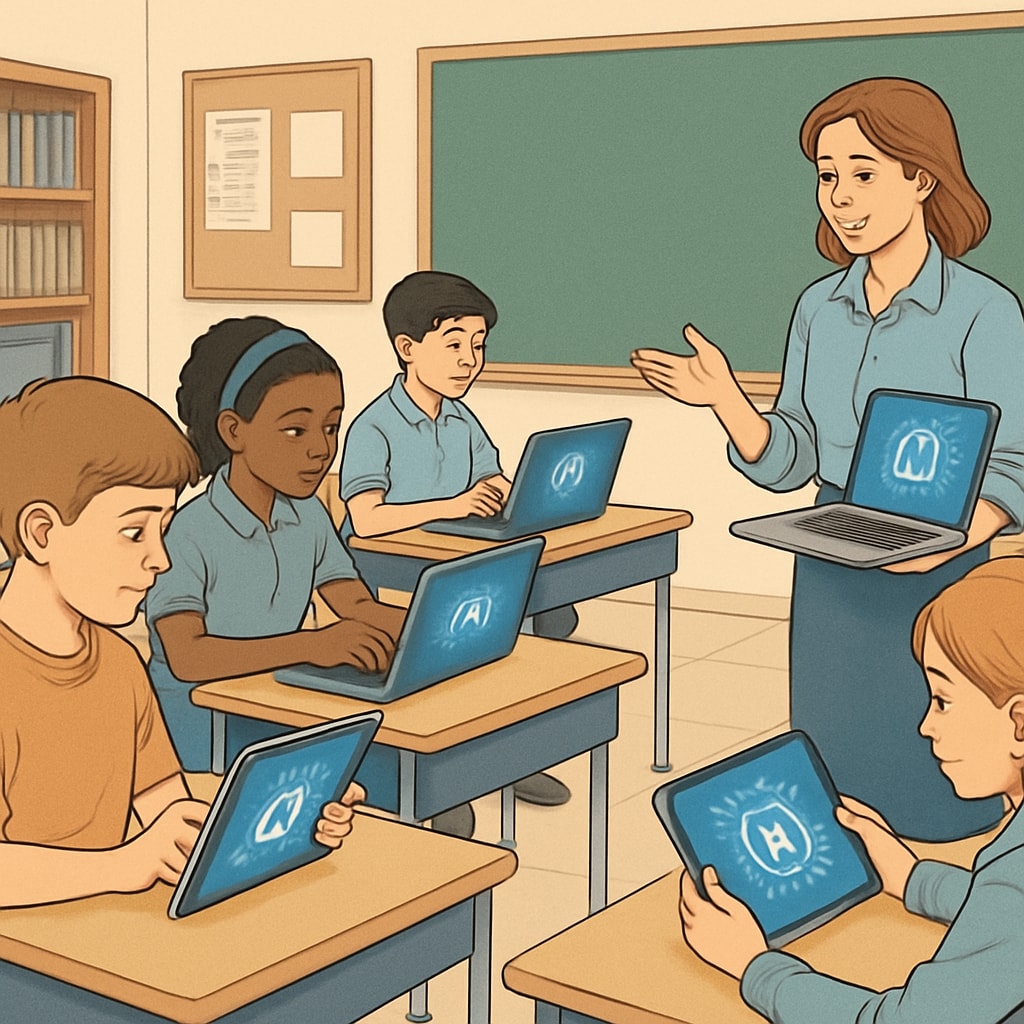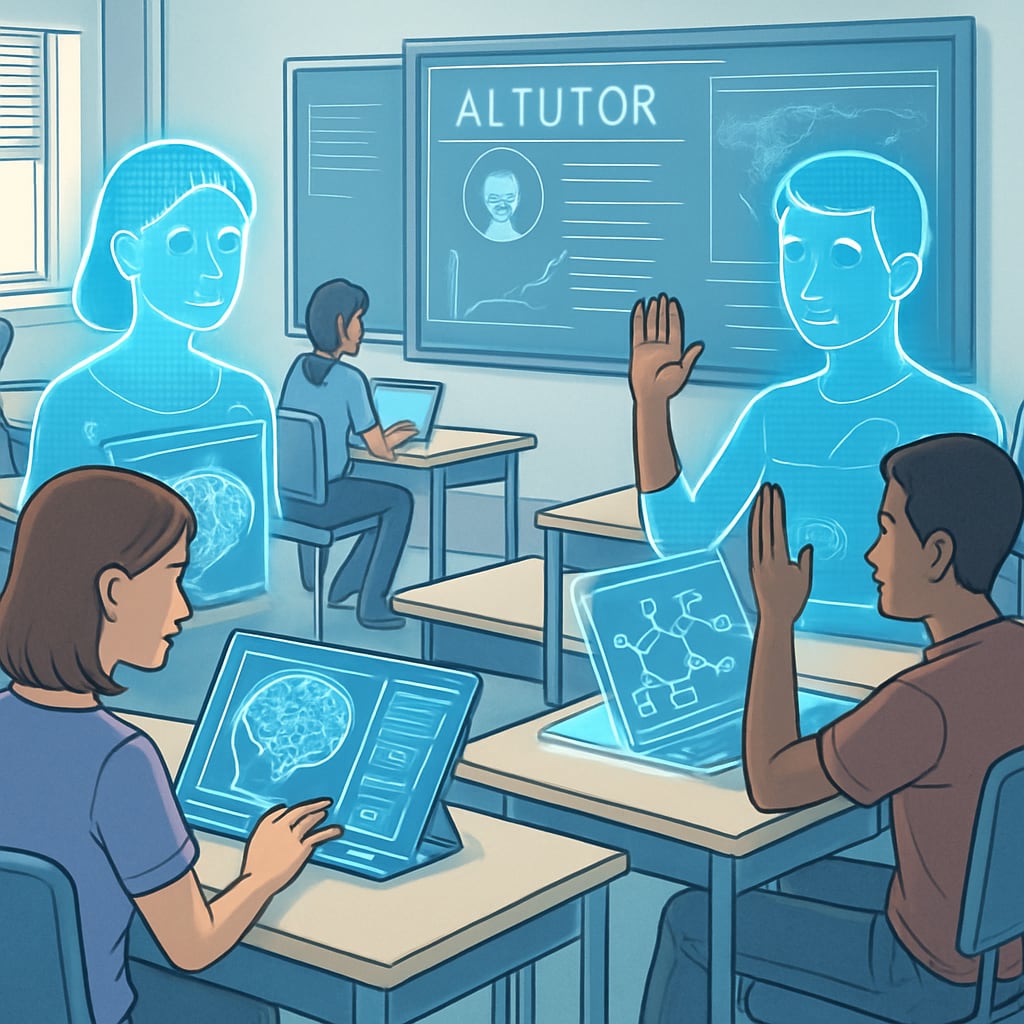Artificial intelligence (AI) is leading a major transformation in K12 education, laying the foundation for a personalized, adaptable, and globally connected learning ecosystem. As education systems worldwide grapple with globalization, demographic shifts, and the changing nature of work, AI is emerging as a central force in redefining teaching and learning. By 2030, the integration of AI technologies is set to significantly reshape traditional education models, empowering both students and educators. This article explores these transformative trends and provides insights into the future of education shaped by AI.
How AI is Reshaping K12 Education: Key Trends
AI-driven technologies are making significant inroads into K12 education, introducing innovations that enhance both teaching and learning experiences. The following trends are driving the evolution:
- Personalized Learning: AI algorithms analyze student data to create tailored lesson plans, ensuring that each learner progresses at their own pace.
- Adaptive Assessments: Smart tools dynamically adjust the difficulty of exercises and tests based on real-time student performance.
- Global Collaboration: AI-powered platforms foster international student connections, creating cross-cultural learning opportunities.
- Teacher Augmentation: AI assists teachers by automating administrative tasks, generating insights into student progress, and providing professional development resources.
These trends not only address longstanding challenges like large class sizes and diverse learning needs but also prepare students for the demands of future workplaces. For example, AI-enabled adaptive learning platforms, such as those developed by Khan Academy, have already demonstrated the potential to revolutionize individualized instruction.

2030 Education Framework: The AI Paradigm
By 2030, the integration of AI in K12 education is predicted to reach new heights, fundamentally altering how education systems operate. Several key frameworks are expected to define this future:
- Student-Centric Curricula: AI will enable hyper-personalized curriculums, allowing students to focus on their strengths and interests while addressing specific weaknesses.
- Globalized Learning Environments: Virtual classrooms powered by AI will connect students worldwide, promoting cultural exchange and global awareness.
- AI-Empowered Educators: Teachers will increasingly rely on AI tools for enhanced lesson planning, student engagement, and performance tracking.
- Ethical AI Implementation: Ensuring fairness, transparency, and accessibility in AI tools will become a critical priority for education policymakers.
Moreover, the role of AI in bridging educational gaps across socioeconomic groups is expected to grow. For instance, AI-powered tools like Duolingo are already making quality education accessible to underserved populations, a trend that will likely expand by 2030.

Challenges and Opportunities: Preparing for 2030
While AI has immense potential to transform education, its implementation comes with challenges. Issues such as data privacy, algorithmic bias, and the digital divide must be addressed to ensure equitable access to AI-powered learning tools. At the same time, opportunities abound:
- Empowering Underserved Communities: AI can bring education to remote areas, using internet-based platforms to overcome geographic barriers.
- Skill Development for the Future: AI-integrated curriculums will emphasize critical thinking, creativity, and digital literacy, equipping students for AI-driven workplaces.
- Teacher Support: By automating repetitive tasks, AI will free up educators to focus on mentoring and fostering deeper connections with students.
Governments, educators, and technology providers must collaborate to develop ethical policies and ensure AI is deployed responsibly. As highlighted by Britannica, the ethical use of AI in education requires balancing innovation with inclusivity.
In conclusion, AI holds the promise of transforming K12 education into a dynamic, student-centered, and globally connected ecosystem. By 2030, the education landscape will likely be unrecognizable, shaped by the seamless integration of AI technologies. However, realizing this vision will require addressing challenges and ensuring that AI benefits all learners equally. As we move toward this exciting future, the role of educators, policymakers, and technologists will be more critical than ever in guiding the responsible evolution of education.
Readability guidance: Short paragraphs, clear subheadings, and lists have been used to enhance readability. Passive voice has been minimized, and transitions (such as “for example” and “as a result”) are included to improve flow.


